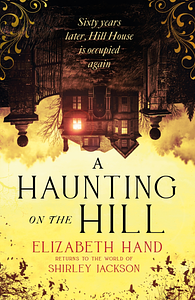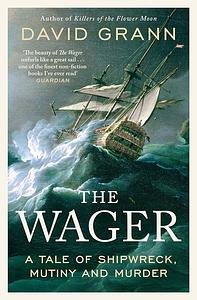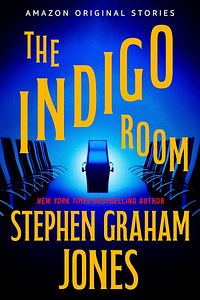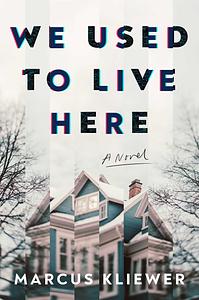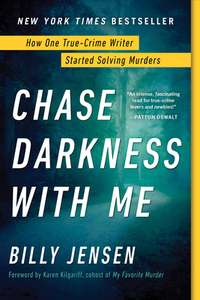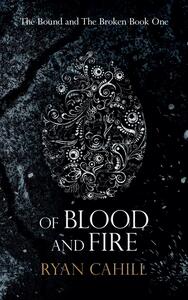Take a photo of a barcode or cover
stormlightreader's Reviews (934)
"Hill House watches. Hill House waits."
Ultimately, I probably liked it as much as I liked Shirley Jackson's, The Haunting of Hill House.
A very character focused book, which is big ask given how annoying they are. It too long for Hill House to become the focus and when it did, there was about 50-odd pages left and then it seemed like the author ran out of ideas and just ended the book.
The only bits I liked were a few quotes about Hill House. My favourite take on the story of Hill House is the Netflix adaptation, which gave the atmosphere that neither this book nor Jackson's original could deliver for me.
"He has murdered the whole family, you could say"
My edition is an updated edition and despite its size (800+ pages), the pacing was really good. It felt like how an older style documentary would have laid out the details of the case.
The author does a good job of giving you an idea of who the women were as people, rather than just sensationalising the Ripper himself. The author also follows up with what happens to the victims' family members following the deaths of the women. The descriptions of the crime scenes really give the reader a feel for the type of locations the Ripper was utilising for his crimes. I also really liked the brief discussion around whether
I could really have done without the extensive information on the detectives' personal lives. I really don't need to know that a detective had a preference for alcohol (shocker) or the age at which another detective bought a house. However, Bilton highlights errors made by the police that delayed the apprehension of Sutcliffe, ultimately resulting in preventable deaths.
While the importance of local knowledge can't be disputed in a murder investigation, this mindset had a monumental impact on this investigation and made the detectives very blinkered. Anybody who lives outside of the northeast of England, thinks that
Note: The audio also includes an extra chapter (which is not in the extended paperback edition) including Sutcliffe's move to HMP Frankland and his death in 2020.
I think this may be one of the best true crime book I've read. It felt like a comprehensive account of the case, without making sensationalising Sutcliffe or his crimes.
This is a somewhat interesting account of the Wager and its crew, but I had to keep reminding myself that I was reading non-fiction because the amount of dialogue makes you think it's fiction.
I have come to the conclusion that Grann's writing style isn't for me. The pacing was a little inconsistent and the conclusion came together pretty quickly, considering all of the threads the author was exploring. The consequences of everything that happened seemed pretty cut and dry, based on what Grann had implied (using other 'case studies') but the matter was “resolved” in a different way.
I did get confused at times because we were primarily following the crew on the Wager, but throughout (and particularly towards the end), the author began talking in detail about another ship and then another one. I think this is the reason I can't gel with Grann's writing style.
Overall, I learned some cool facts about life on a ship, but an awful description about halfway through made me want to DNF.
I have come to the conclusion that Grann's writing style isn't for me. The pacing was a little inconsistent and the conclusion came together pretty quickly, considering all of the threads the author was exploring. The consequences of everything that happened seemed pretty cut and dry, based on what Grann had implied (using other 'case studies') but the matter was “resolved” in a different way.
I did get confused at times because we were primarily following the crew on the Wager, but throughout (and particularly towards the end), the author began talking in detail about another ship and then another one. I think this is the reason I can't gel with Grann's writing style.
Overall, I learned some cool facts about life on a ship, but an awful description about halfway through made me want to DNF.
Although Reacher is at a disadvantage at the start of the book, the formula that we've become so familiar with means that he's always going to succeed in his mission. Regardless of the lack of thrill in these books, I still look forward to a new Reacher thriller and even more so now I now have a solid image of Reacher (thanks to Alan Ritchson) and I just picture his version of Reacher, which does often makes the book a little more interesting.
I do think that Reacher has gotten funnier in the Lee/Andrew Child instalments and I'm not at all mad about it because it reflects Alan Ritchson's humour as Reacher, too, which I really like.
I did struggle with the audio narration in this one. I think the narrator seemed to not really care about the quality of his narration for one of the antagonists. It just sounded like how I might sound if I tried to imitate and man's voice.
I do think that Reacher has gotten funnier in the Lee/Andrew Child instalments and I'm not at all mad about it because it reflects Alan Ritchson's humour as Reacher, too, which I really like.
I did struggle with the audio narration in this one. I think the narrator seemed to not really care about the quality of his narration for one of the antagonists. It just sounded like how I might sound if I tried to imitate and man's voice.
Not really much to report on here. I look forward to another DCI Ryan mystery these days.
Belsay felt a lot like Ryan's Christmas, in that the team are heading out for a nice evening and bang! a dead body derails the evening.
I'll be honest, the main plot didn't really interest me, I was here for the plot threads surrounding that and I got what I came for.
Belsay felt a lot like Ryan's Christmas, in that the team are heading out for a nice evening and bang! a dead body derails the evening.
I'll be honest, the main plot didn't really interest me, I was here for the plot threads surrounding that and I got what I came for.
I tried multiple stories from this collection and this is the only one I finished. Nothing amazing but good enough to keep me reading.
The start was confusing.
It fell flat for me.
It fell flat for me.
Kliewer creates such a tense atmosphere throughout the book and I'll be honest, I bought the e-book not long after we moved into our new house and I'm glad I didn't read it then 😂 the author did a really good job of making you feel just as unstable as the protagonist. I honestly couldn't figure out what was going on in that last third of the book and it was no clearer by the time I finished.
Questions:
Questions:
- Do people actually just turn up at a house that they grew up in asking to have a look around? Seems unfathomable to me.
- Also, do people actually let these audacious people in? If so, what are you thinking?!
This quote was great and summarises what my approach to this situation would've been:
“Would’ve been a quick night if I answered the door …”
“Hello miss.” Eve pretended to be Thomas. “Can we come in?”
“Nope.”
Perfect! 😂
When the family are stupidly allowed in, the things the father starts pointing out just made me think how much I wouldn't want to know the details of what a house looked like when the previous occupants lived there. It just feels too familiar and intimate .
The pacing was really good and kept me reading from the first page, and I was always keen to pick it back up. It is definitely plot-driven, which isn't a problem for me with horror/thrillers. I did find some threads felt a little abandoned (which is an understatement when you take the ending into account), particularlythe man in the cabin and Heather's connection to the Faust's . I think the lack of detail we're given on the characters (except our protagonist) added to the atmosphere of the book.
I know this book would probably have people clamouring for a sequel, but I feel more positive about the book because it left me with questions. Not all books need to have an ending that is nicely tied up.
I thought the overall rating of this would be higher because of how hyped it was. However, based on the few reviews I've glanced at, the confusion of the book is a problem, but for me it worked. It's definitely different to what I've read recently, although, it did give me similar feels to The September House, which also had a fresh take that I liked.
One random thought that didn't coherently fit into the review:
The pacing was really good and kept me reading from the first page, and I was always keen to pick it back up. It is definitely plot-driven, which isn't a problem for me with horror/thrillers. I did find some threads felt a little abandoned (which is an understatement when you take the ending into account), particularly
I know this book would probably have people clamouring for a sequel, but I feel more positive about the book because it left me with questions. Not all books need to have an ending that is nicely tied up.
I thought the overall rating of this would be higher because of how hyped it was. However, based on the few reviews I've glanced at, the confusion of the book is a problem, but for me it worked. It's definitely different to what I've read recently, although, it did give me similar feels to The September House, which also had a fresh take that I liked.
One random thought that didn't coherently fit into the review:
- Kai is the worst for kicking Shylo and he deserved what he got!
Apparently, this is going to be a Netflix film, with Blake Lively starring and co-producing. Ugh!
What kind of worked for me?
Jensen is a journalist who clearly advocates for the victims. We hear about Jensen's use of Facebook ads to try and reach potential witnesses, at his own expense. He combines real life examples of mysteries that he solved or helped solve, while discussing those that weren't solved.
The pacing worked well for me, possibly because I was using a combination of audio and physical. However, I feel like the book idealises regular people helping to solve crimes, which I really don't think should be encouraged. It’s a mix of autobiography and true crime, and I could have done without the former.
These gripes (and the more detailed gripe below) aside, I enjoyed listening to the cases that he was involved with. The range of crimes was quite unexpected and it was interesting to hear about crimes more at the community level, rather than the more sensationalised crimes (which are obviously name-dropped in here but not focused on).
What really didn't work for me?
This book feels like an attempt at being a follow up to I'll Be Gone in the Dark (by Michelle McNamara), which for me, is a one-of-a-kind true crime book that cannot be replicated. I know Jensen was involved in finishing I'll Be Gone in the Dark following McNamara's death (we are reminded several times), and quite a bit of this book is given over to the details of meeting with McNamara's widower and finishing the book.
Listening to this author detail how he went from writing about crime for newspapers to helping to track down criminals himself kind of made me think he was trying to replicate the relationship McNamara developed with police during the hunt for the Golden State Killer. There is even a direct comparison at one point, when he refers to him trying to prove that he can be trusted by detectives the way McNamara was naturally embraced by them. When I read I'll Be Gone in the Dark, I really felt how much McNamara wanted the GSK captured, whereas I didn't get that same vibe with this book. It felt more like a 'How To' guide for amateur keyboard detectives.
Jensen is a journalist who clearly advocates for the victims. We hear about Jensen's use of Facebook ads to try and reach potential witnesses, at his own expense. He combines real life examples of mysteries that he solved or helped solve, while discussing those that weren't solved.
The pacing worked well for me, possibly because I was using a combination of audio and physical. However, I feel like the book idealises regular people helping to solve crimes, which I really don't think should be encouraged. It’s a mix of autobiography and true crime, and I could have done without the former.
These gripes (and the more detailed gripe below) aside, I enjoyed listening to the cases that he was involved with. The range of crimes was quite unexpected and it was interesting to hear about crimes more at the community level, rather than the more sensationalised crimes (which are obviously name-dropped in here but not focused on).
What really didn't work for me?
This book feels like an attempt at being a follow up to I'll Be Gone in the Dark (by Michelle McNamara), which for me, is a one-of-a-kind true crime book that cannot be replicated. I know Jensen was involved in finishing I'll Be Gone in the Dark following McNamara's death (we are reminded several times), and quite a bit of this book is given over to the details of meeting with McNamara's widower and finishing the book.
Listening to this author detail how he went from writing about crime for newspapers to helping to track down criminals himself kind of made me think he was trying to replicate the relationship McNamara developed with police during the hunt for the Golden State Killer. There is even a direct comparison at one point, when he refers to him trying to prove that he can be trusted by detectives the way McNamara was naturally embraced by them. When I read I'll Be Gone in the Dark, I really felt how much McNamara wanted the GSK captured, whereas I didn't get that same vibe with this book. It felt more like a 'How To' guide for amateur keyboard detectives.
In February, I read The Blood that Burns the Winter Snow and I didn't really know how to comment on this short story because I still needed to start the main series. As with The Fall (novella), I loved the writing and atmosphere. In TBtBtWS and The Fall, the atmosphere was right there from the start and Cahill provided so much detail and world-building without it feeling like an info dump.
I finally started Of Blood and Fire last week and unfortunately I didn't really see much of what I loved in those previous stories. That said, I knew I would struggle with a coming-of-age story, and for the first half of the book, I felt like I was just going through the motions. Coming-of-age stuff aside, uncharacteristically I stuck with the book because of the calibre of those shorter instalments. Had I not have read those, I probably would've DNFed.
By the time I finished Of Blood and Fire, I wasn't won over. The stakes didn't feel high and I felt as though the writing read younger because our protagonist is younger. There were big things happening, but the impact didn't feel big, whereas the impact felt huge in The Fall.
I have book 2 on my Kindle and I believe that one focuses more on battles and dragonriders, which is what really hooked me with The Fall. So, I will be giving that a go and deciding from there what I'll do.
I finally started Of Blood and Fire last week and unfortunately I didn't really see much of what I loved in those previous stories. That said, I knew I would struggle with a coming-of-age story, and for the first half of the book, I felt like I was just going through the motions. Coming-of-age stuff aside, uncharacteristically I stuck with the book because of the calibre of those shorter instalments. Had I not have read those, I probably would've DNFed.
By the time I finished Of Blood and Fire, I wasn't won over. The stakes didn't feel high and I felt as though the writing read younger because our protagonist is younger. There were big things happening, but the impact didn't feel big, whereas the impact felt huge in The Fall.
I have book 2 on my Kindle and I believe that one focuses more on battles and dragonriders, which is what really hooked me with The Fall. So, I will be giving that a go and deciding from there what I'll do.
